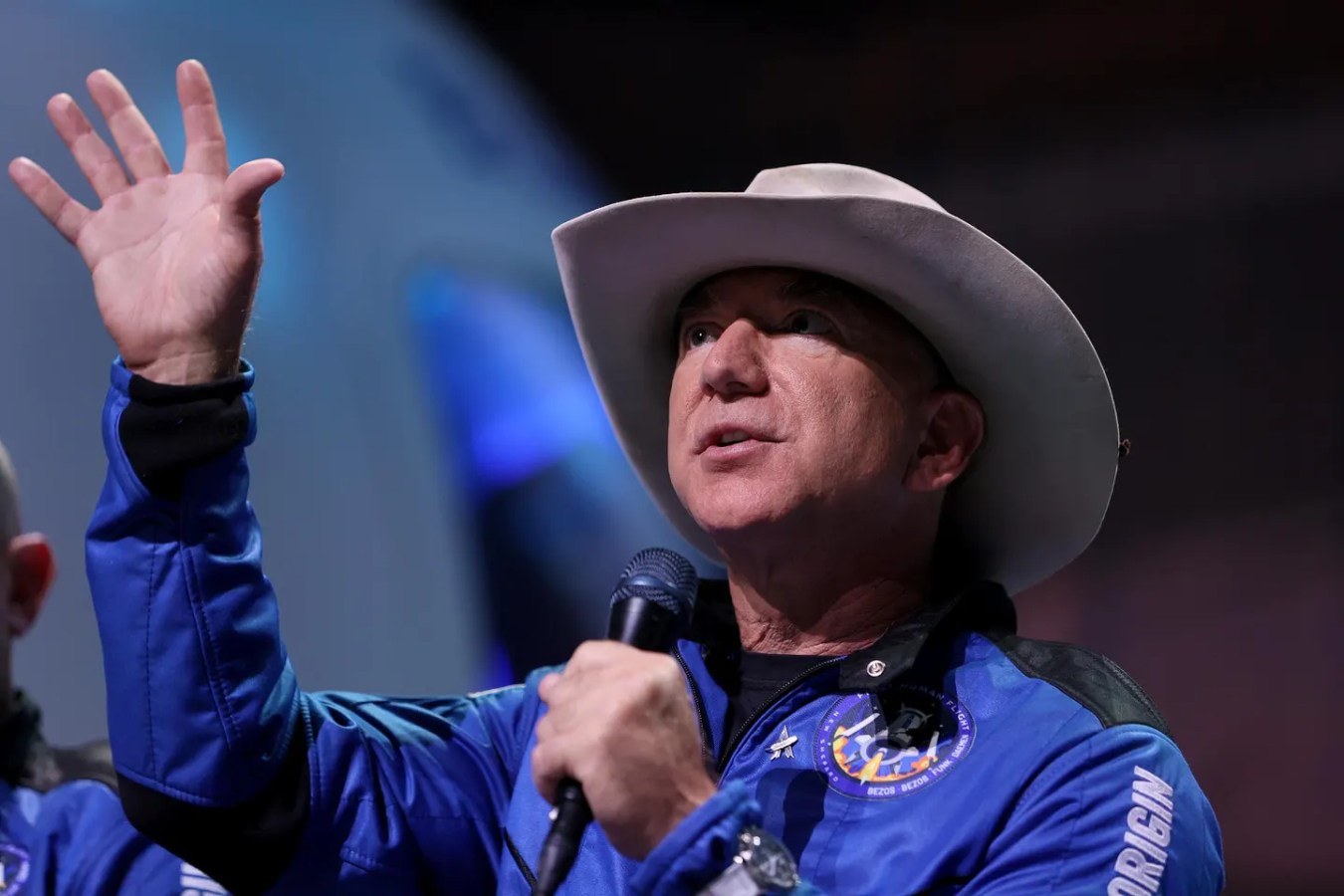The world’s eighth-richest person and the biggest individual donor to research on Parkinson’s disease just gave a valuable sliver of his Alphabet shares to charitable entities that fund healthcare research and treatments.

Last week Google cofounder Sergey Brin gave away $700 million worth of Alphabet shares. The gifts were split between three nonprofits, according to a representative of Brin’s family office. Nearly 80% of the shares—worth around $550 million—went to Brin’s four-year-old nonprofit Catalyst4, while the remaining shares went to the Sergey Brin Family Foundation ($100 million) and Michael J. Fox Foundation ($50 million), which supports research and treatments for Parkinson’s disease.
Brin, 51, is worth an estimated $137 billion and is the world’s eighth richest person. He’s the largest individual donor—at more than $1.5 billion—to research on Parkinson’s disease, which afflicted his mother, who died last year, and for which he has a genetic mutation that means he has a much higher chance of getting the disease than the general population. And he’s made a big commitment to fund research into the causes of bipolar disorder and autism, as Forbes wrote about in February. Brin’s team has created an umbrella group to oversee research in these areas called CNS Quest. (CNS stands for “central nervous system.) His significant gift of Alphabet shares to Catalyst4 will, in large part, power the work of the CNS Quest, per Brin’s representative.
Brin sees his philanthropic mission as deeply “personal because it starts with Parkinson’s disease, and I carry one of the genetic mutations discovered, the G2019S mutation to the LRRK2 gene,” he wrote to Forbes in February. He keeps his life private, but all three conditions under the CNS Quest have affected members of his family. Brin’s increased giving to Catalyst4, a type of nonprofit called a 501(c)(4) that can lobby the government as well as own entire for-profit companies, may be part of a broader shift in his giving strategy.
To date, Brin has donated at least $1.5 billion to Catalyst4. In late 2021, Brin seeded the entity with more than $450 million worth of Alphabet and Tesla stock, then gave it another $615 million in 2023. Catalyst4 is still smaller than Brin’s decade-old, more traditional nonprofit, the Sergey Brin Family Foundation, which had $4 billion in assets as of the end of 2023. But in recent years he’s been giving more to Catalyst4 than to his family foundation, which also funds various climate and education initiatives.
With Catalyst4, Brin hopes that his efforts can address both basic science research and eventual treatments and therapies; the latter most often comes from for-profit companies. “What we’ve learned and seen from our other initiatives is that it’s really important to fund both things in parallel, and have that feedback loop across both the science and the clinical side of things, like trial design, drug development and therapeutics,” Ekemini Riley, a molecular medicine Ph.D. who helps lead the CNS Quest initiatives, told Forbes in February.
In some cases, this means investing in biopharma companies through Catalyst4. Brin has been backing startups and venture capital funds that are working on for-profit solutions and treatments, investing more than $600 million to date, including about $400 million in 2024 alone.
According to nonprofit tax filings, Catalyst4’s portfolio includes a majority stake in biopharma firm MapLight, which is developing treatments for brain diseases and autism. MapLight is currently enrolling patients in Phase 2 clinical trials for a drug candidate that aims to help with “social communication deficits” in certain autistic people. In February, Catalyst4 also led an $80 million funding round in Stellaromics, which makes detailed three-dimensional maps of gene activity in slices of tissue for other companies to use in drug development. Any profits from investments must be reinvested into the nonprofit, and Catalyst4 has given some portfolio companies “philanthropic dollars” (often some 25% of the total investment) along with its equity investment, according to a person familiar with Brin’s philanthropy.
It’s still unclear how exactly Brin will use his latest gift to further the goals of the CNS Quest and Catalyst4. But the ramp-up will certainly continue, especially crucial as the Trump administration continues to cut funding for medical research and clinical trials.
This article was originally published on forbes.com and all figures are in USD.
Look back on the week that was with hand-picked articles from Australia and around the world. Sign up to the Forbes Australia newsletter here or become a member here.


